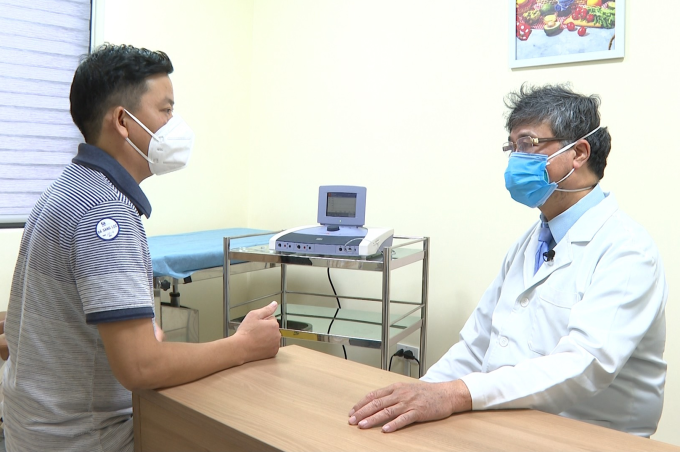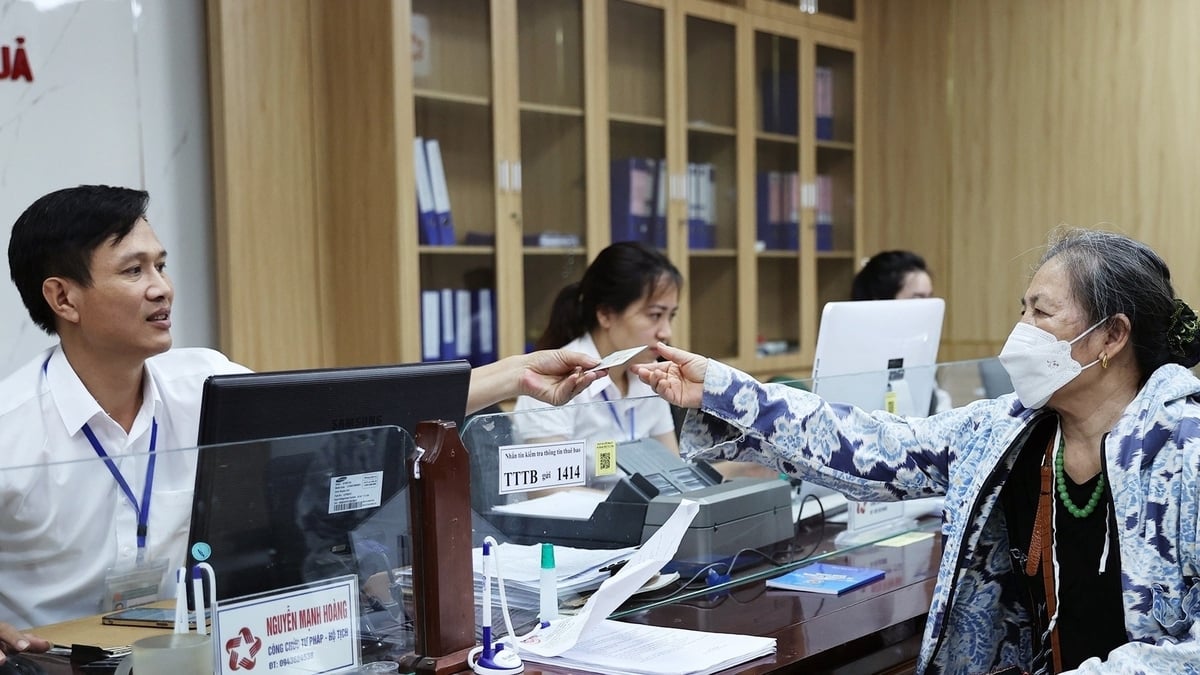Long-term constipation can lead to many dangerous complications such as swollen veins in the anus, anal fissures, and bowel protrusion from the anus.
Constipation is a digestive disorder that is very common in the world . The disease can occur at any age, but is most common in the elderly (over 65 years old), children and pregnant women. Having bowel movements less than 3 times a week is considered constipation.
Master, Doctor Nguyen Van Hau, (Endoscopy and Gastrointestinal Endoscopy Center, Tam Anh General Hospital, Ho Chi Minh City) said that people with constipation often have irregular stools, difficult stools accompanied by a feeling of pain and hardness. When this condition persists, the stool cannot be excreted, accumulating for too long in the colon, which can put the patient at risk of many serious health risks. If constipation persists, it can cause the large intestine to stretch out almost without wrinkles and reach the heart.
Intestinal obstruction: When the body cannot expel feces, over a long period of time, it accumulates in the intestines and creates a blockage. The stool is hard and too large, preventing the large intestine from contracting and pushing it out, causing pain and infection. Symptoms of the patient are abdominal pain, discomfort, cramps after eating, nausea, headache...
Hemorrhoids: Long-term constipation and straining during bowel movements cause the veins in the anus and rectum to swell and become inflamed, known as hemorrhoids or piles. External hemorrhoids can cause itching or pain during bowel movements. Internal hemorrhoids are usually painless, but when they are painful, they are often inflamed or thrombosed, and the patient may see bright red stool in the toilet.
Anal fissure: A tear appears on the mucosal layer of the anus, exposing the surrounding muscles, leading to spasms, which in the long run stretch the edges of the fissure wider. The injury often appears when the patient is constipated, defecating with hard, large stools, causing pain and bleeding.

Constipation is a fairly common digestive disorder. Photo: Freepik
Rectal prolapse: The disease occurs when the last part of the colon, the rectal mucosa, protrudes out of the anus regularly or during bowel movements. Common symptoms of rectal prolapse are a feeling of wetness in the anal area, itching or pain around the anus, leakage of stool, mucus, red tissue protruding out of the anus after bowel movements or regularly outside the anus.
Doctor Van Hau said that constipation has many causes, which can be due to primary causes such as pelvic floor dysfunction due to muscle and ligament degeneration, leading to the inability to keep the muscles in the pelvic floor in the correct position. The anus and rectum are also among the organs affected and lead to constipation. This condition can be due to a disorder of the stool excretion mechanism, poor intestinal motility, loss of defecation reflex or lack of beneficial intestinal bacteria.

Doctor Van Hau examines a patient. Photo: Provided by the hospital
Secondary constipation is the most common cause, due to a diet lacking in fiber, eating too much fat, not drinking enough water, being sedentary, and frequently delaying bowel movements. People with systemic diseases such as head trauma, spinal cord injury, Parkinson's, depression, anxiety disorders, endocrine disorders, lead poisoning... are also causes of constipation.
Dr. Hau added that treating constipation requires treating the cause, adjusting the diet, using laxatives, stool softeners, stimulants, and intestinal enzymes. Currently, there is a physical therapy method to restore the two defecation reflex arcs, a treatment complex applied in many major digestive centers around the world. Tam Anh General Hospital in Ho Chi Minh City is one of the first places in Vietnam to apply this complex method in treating constipation.
Constipation is mainly caused by unhealthy eating habits and lifestyle. Therefore, people need to change their lifestyle to prevent constipation such as using more fiber-rich foods such as green vegetables, fruits, whole grains... and limit animal fat, industrial food, bottled soft drinks, beer, alcohol, drink 2-2.5 liters of water per day.
Adolescents and adults should regularly engage in physical activity, at least 30 minutes a day, with sports that are suitable for their health. Limiting stress and anxiety by arranging work and rest properly also helps prevent constipation. Everyone should form a habit of going to the toilet at a certain time, preferably after breakfast. Children who stop drinking formula milk or change the type of milk they are drinking can improve constipation.
Doctors note that if you have tried the above methods but your constipation does not improve and you still cannot defecate for 3-4 days, you should see a doctor. People with blood in their stool, severe pain, unexplained weight loss, vomiting or fever, lower back pain... should be examined and treated promptly to avoid possible complications.
Quyen Phan
Source link






























![[Photo] National Assembly Chairman attends the seminar "Building and operating an international financial center and recommendations for Vietnam"](https://vphoto.vietnam.vn/thumb/1200x675/vietnam/resource/IMAGE/2025/7/28/76393436936e457db31ec84433289f72)







































































Comment (0)